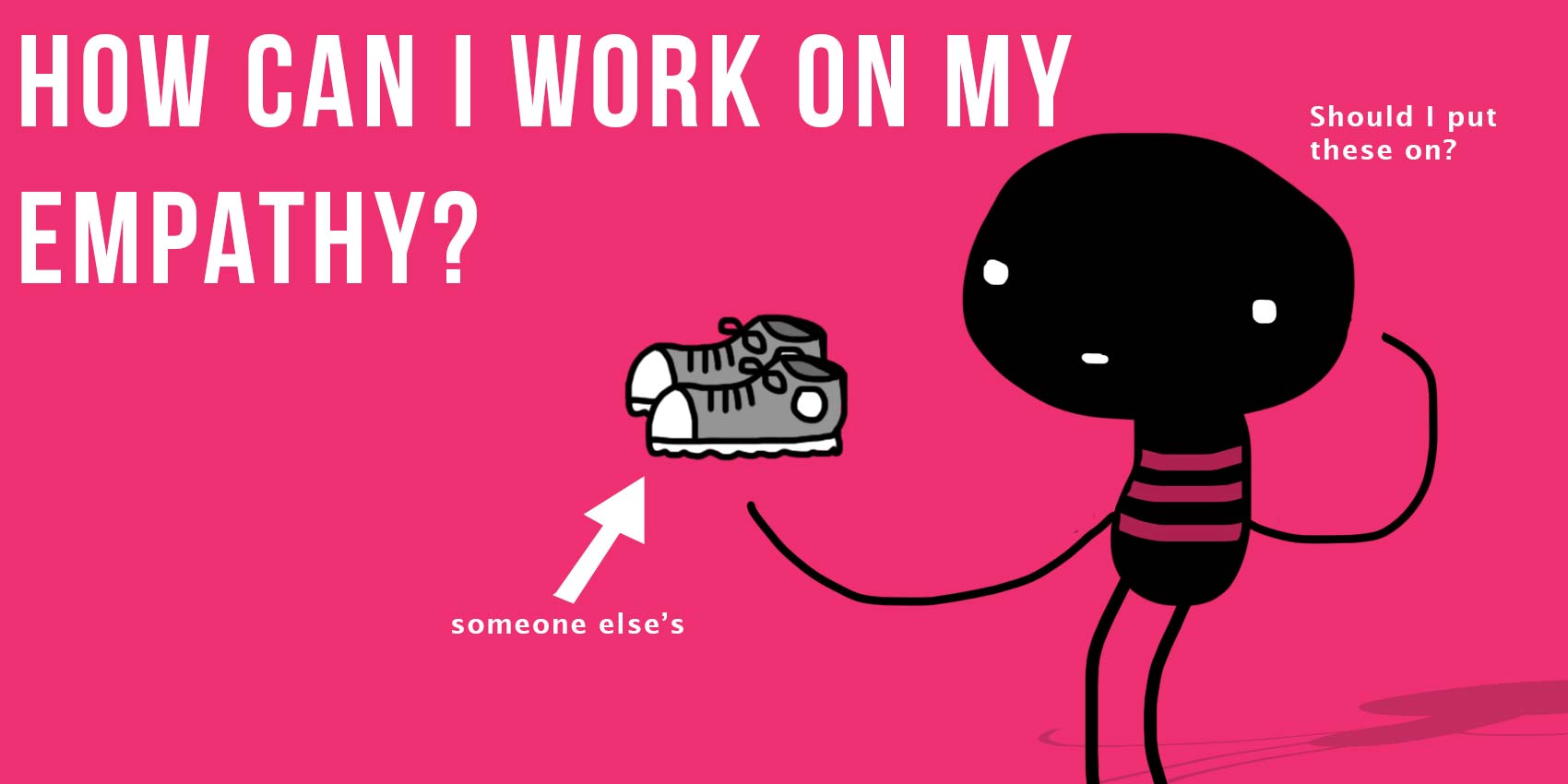14 Jan How can I work on my empathy?

The brain has the ability to rewire itself based on the thoughts that we have.
When you shift your thinking, you literally shift your self.
How does this information help you to improve your empathy? In the previous posts, you learned that by increasing your level of empathy, you can feel a whole lot better in many ways.
Knowing this has led researchers to study what is happening in the brain to see how empathy can be improved. The next post will cover more ways to improve empathy, but here you will learn the most powerful: focusing on feelings….
Focus on feelings: To increase empathy, focusing on how a person might feel is helpful.
The first step toward understanding other people’s feelings is to understand your own. Take this quick quiz assuming what a normal person would feel under these circumstances:
Your pet turtle, Gladis, dies after you’ve cared for her for 6 years. How do you feel? Sad, relieved, anxious, happy. (choose one)
You won tickets to see your favorite band: (choose one feeling) lonely, excited, fearful, timid
You were tripped in front of a crowd of people and everyone laughed: (choose one) fortunate, tense, embarrassed, hungry
So, the most common answers to the above scenarios are: sad, excited, and embarrassed (but they are not the only feelings possible: for instance if Gladis bit you every time you went to feed her, you may feel relieved). But, if you were not sure how you would feel in those situations, then it might be difficult to imagine what another person would feel. You might struggle with empathy.
To increase your empathy, ask yourself, “How would I feel in that situation?”
The previous sub-post discusses how people can sometimes get those feelings wrong, but on the whole, asking how you might feel in the same situation will lead you in the right direction to not only experience empathy, but to formulate ideas on how you may be able to help. Many experiences have near universal feelings—like losing a pet or getting tickets to your favorite band.
So take another try at it. How might you feel in the following situations?:
Your pet fish died because you forgot to feed it.
You failed your math test.
You got asked out on a date by your crush.
You won the lottery.
You ran into your birth dad whom you haven’t seen in ten years.
How might you feel with each one?
If you are in a group setting and reading this, see how many people in the group agree with you. Do most people have the same feelings? If not, why or what are the differences?
Most people’s answers to the first four are pretty similar—that last one is a bit trickier. If you ran into your birth dad after years of not seeing him, your feelings might range from happy/excited to scared/confused and even angry/frustrated. Can you think of what life experiences might make a person feel each of these different ranges of emotions? Try it: it’s an exercise in empathy!
[Possible answers if you are stuck:
You feel happy/excited because you have been searching for your birth father for ten years!
You feel scared/confused because your birth father is volatile and violent and you don’t know if he’s going to hit you when he sees you.
You feel angry/frustrated because he left you and your mother without any money and you lived on the street for several months because of it. You want to scream at him but can’t since you at your uncle’s funeral.]
“Standing in someone else’s shoes” is how most people describe empathy.
Attempting to see things from another’s point of view is a way understand their feelings. The more you can do this and imagine how they might feel, the more your empathy will grow.
Imagining what someone else is feeling is something bullies do not do.
Standing in someone else’s shoes is something psychopaths do not do.
Considering other people’s thoughts and feelings is something that you can do.
That way you can feel more connected to people and help make the world a better place.
Then, encourage other people to do it too.
For more ideas on building empathy, check out the next sub-post….




Post Question:
What do you think a person who is being bullied feels?
Answer the post question here
What's being said